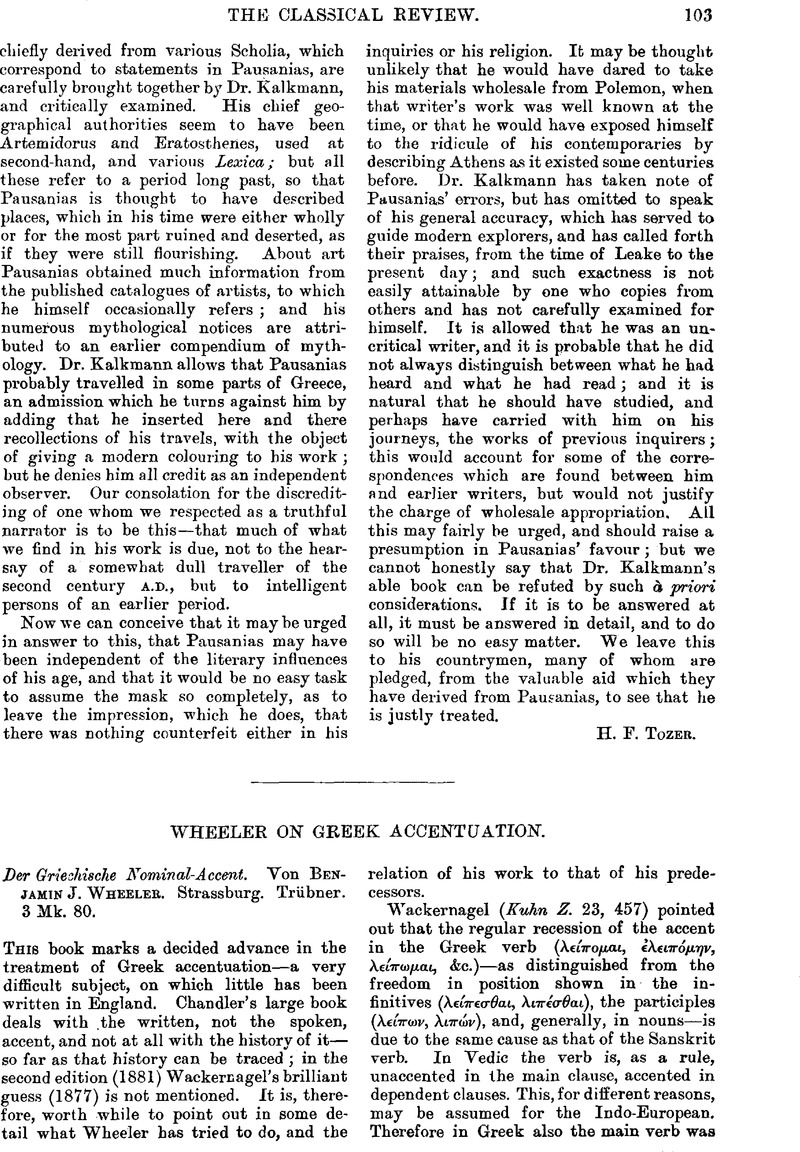No CrossRef data available.
Article contents
Wheeler on Greek Accentuation - Der Grieshische Nominal-Accent. Von Benjamin J. Wheeler. Strassburg. Trübner. 3 Mk. 80.
Published online by Cambridge University Press: 27 October 2009
Abstract

- Type
- Book Review
- Information
- Copyright
- Copyright © The Classical Association 1887
References
page 104 note 1 Whether this new accent was a pitch-accent from the beginning, or a secondary stress-accent passing afterwards into pitch, Wheeler does not say; and, indeed, the absence of any definition of the sense in which he uses the term ‘accent’ is a fault.
page 105 note 1 If it be asked why it is maintained that the Sanskrit accent is here right and the Greek wrong, the answer is given by the Teutonic. Here we have for ‘father-in-law’ in O.H.G. swehur, and in A.S. sweor (where an k is lost); for ‘mother-in-law’ O.H.G. swigar, A.S. sweger. Here the occurrence of the h proves that the accent in original Teutonic was on the first syllable of the word, the g that it was on the last—in agreement with Sanskrit çv´açuras (masc.), çvaçrū (fem.). This result is one of many due to ‘Verner's Law’ (K.Z. 23, 97). As every educated Englishman has at least a distant acquaintance with ‘Grimm's Law,’ it is somewhat strange how little Verner's article (1877), which shews how a set of regular exceptions to Grimm's law is caused by the operation of a wider (accentual) law, is known in England.
page 105 note 2 This fact implies that the type is old (no doubt many examples of it are late); if so, we may fairly infer that the oxytone forms (αἰγοβοσκ⋯ς, διοτρεφ⋯ς, ⋯λια⋯ς are older than the paroxytone, for a change from oxytone backwards suits the new principle; a change from paroxytone to oxytone would not.
page 106 note 1 Wheeler notes that many compounds seemingly of this kind are rather to be regarded as attributive, e.g. ⋯⋯ρροος = ‘having a fair stream,’ rather than ‘fair-flowing.’ The difficulty of drawing the line between determinative and attributive compounds might well cause some confusion of accent.




